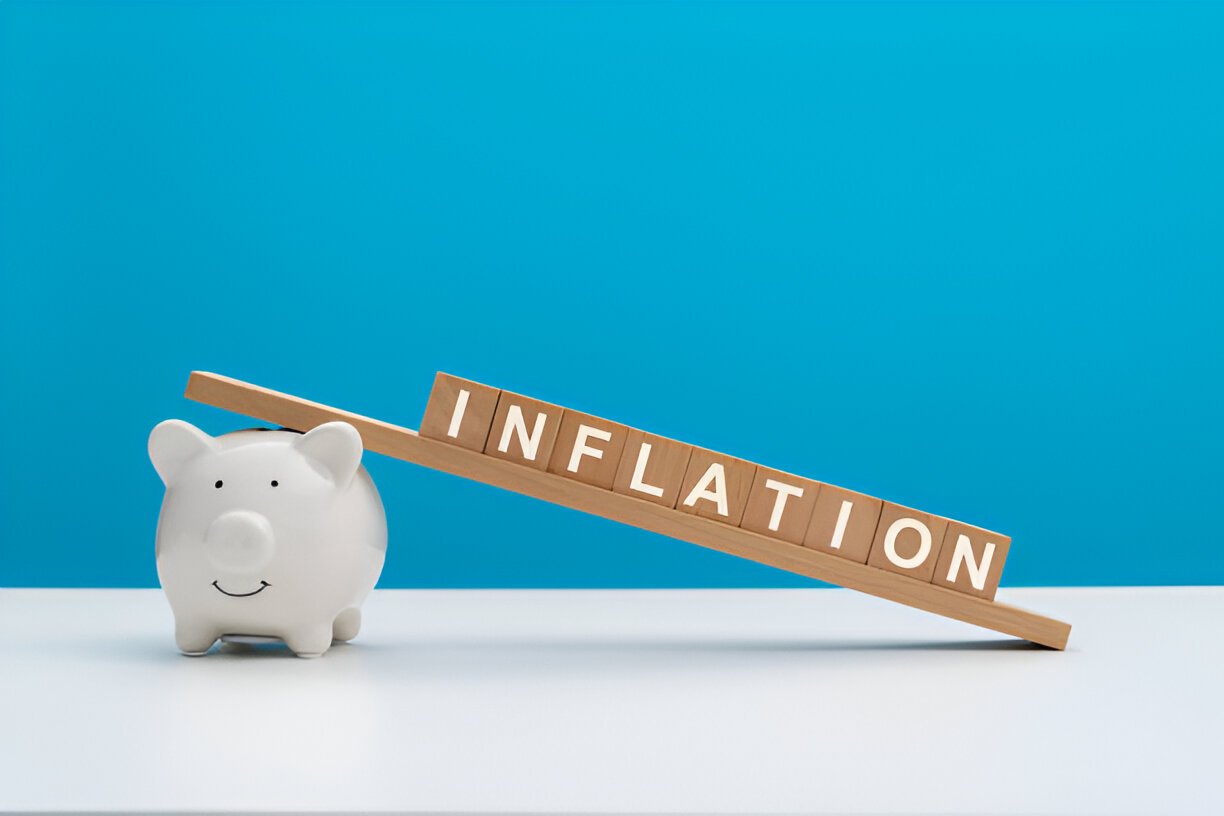How to avoid lifestyle inflation and stick to your budget is crucial for maintaining financial stability. Lifestyle inflation occurs when your spending increases alongside your income, leading to higher expenses and a more luxurious lifestyle. While it’s tempting to upgrade your purchases or indulge in more frequent dining out, these small increases in spending can slowly erode your long-term savings and financial goals. Instead of allowing lifestyle inflation to derail your finances, it’s important to make mindful decisions that align with your financial objectives.
Sticking to a budget is one of the most effective ways to guard against lifestyle inflation. A clear, well-structured budget helps you track your spending, prioritize your financial goals, and avoid unnecessary debt. By resisting the temptation to increase your lifestyle with every income bump, you can focus on building wealth for important milestones such as retirement, homeownership, or debt repayment. Maintaining discipline in your spending helps secure your financial future reduces stress and fosters peace of mind as you stay on course to meet your financial aspirations. To avoid lifestyle inflation and stay on track with your budget, consider implementing the following strategies:

How to avoid lifestyle inflation and stick to your budget: Understanding Lifestyle Inflation
How to avoid lifestyle inflation and stick to your budget begins with understanding the psychological drivers behind this phenomenon. Lifestyle inflation is often fueled by emotional factors, such as the desire to keep up with peers or the impulse to make purchases for short-term happiness or stress relief. This emotional spending can lead individuals to make unnecessary upgrades or indulge in luxury items that stretch their budgets. Additionally, the pursuit of instant gratification can cause people to prioritize immediate rewards over long-term financial stability, increasing their living expenses without a clear plan for how it affects their savings.
Recognizing the signs of lifestyle inflation early is essential in preventing it from derailing your financial goals. Common indicators include a gradual shift in spending habits, where luxuries become regular expenses. For example, you might find yourself justifying higher spending on non-essential upgrades or services by thinking you “deserve” them because of a recent pay raise. Another sign is comparing your current lifestyle to your past, noticing more frequent dining out, purchasing expensive gadgets, or taking lavish vacations. These shifts in spending habits are clear signals that lifestyle inflation is taking hold, but with awareness and strategic planning, you can stay on track with your budget and financial objectives.
Strategies on How to Avoid Lifestyle Inflation and Stick to your Budget
- Setting Clear Financial Goals
Establishing clear financial goals is the cornerstone of avoiding lifestyle inflation. These goals serve as a roadmap, helping you stay focused and resist the urge to increase spending as your income grows. Short-term goals, such as building an emergency fund, paying off credit card debt, or saving for a vacation, provide immediate milestones to work towards. Long-term goals, like saving for retirement, buying a home, or funding your children’s education, require consistent effort over time. By prioritizing these goals, you ensure that your money is directed toward your financial future rather than unnecessary expenditures.
- Developing a Realistic Budget
Creating a realistic budget that accurately reflects your income and expenses is crucial for effective financial management. Start by categorizing your spending into needs and wants—essential expenses like housing, utilities, and groceries versus non-essential items such as entertainment, dining out, or luxury purchases. A good budget allows for some flexibility, accommodating occasional indulgences or unexpected expenses, so you don’t feel deprived. Discipline is key; regularly tracking your spending and making necessary adjustments will help you stay within your budget and avoid the pitfalls of lifestyle inflation.
- Practicing Mindful Spending
Mindful spending is about being intentional with your purchases, ensuring that each expense aligns with your values and financial goals. Techniques like delayed gratification—waiting before making non-essential purchases—can help you avoid impulse buys and assess whether a purchase is necessary. Evaluating whether an item is a need or a want before buying it helps you prioritize your spending. Additionally, focusing on experiences rather than material possessions often leads to greater long-term satisfaction, as experiences like travel or learning new skills create lasting memories and personal growth.
- Automating Savings and Investments
Automating your savings and investments is a powerful strategy to prevent lifestyle inflation. By setting up automatic transfers from your checking account to a savings account each month, ensure that a portion of your income is consistently saved without requiring conscious effort. Similarly, automating contributions to retirement accounts, such as a 401(k) or IRA, allows your wealth to grow steadily over time without the temptation to divert those funds toward discretionary spending. This approach helps you stay committed to your economic goals and build a secure financial future.
- Building a Financial Buffer
Having a financial buffer, such as an emergency fund, is essential for protecting yourself from unexpected expenses that could otherwise derail your budget. Save as much as possible in a conveniently accessible account to cover three to six months’ worth of living costs. When you receive a raise, bonus, or windfall, resist the temptation to increase your spending; instead, allocate a portion of this extra income to your emergency fund or other savings goals. This strategy safeguards your financial stability and reinforces the discipline needed to avoid lifestyle inflation.
How to avoid lifestyle inflation and stick to your budget: Dealing with Income Increases
How to avoid lifestyle inflation and stick to your budget when your income rises requires a disciplined approach. It’s easy to fall into the trap of upgrading your lifestyle, but wisely managing raises and bonuses is crucial to maintaining long-term financial stability. One effective strategy is to allocate a significant portion—ideally 50-70%—of any income increase toward savings or debt repayment, instead of spending it immediately. This helps ensure that your financial health improves alongside your income, allowing you to avoid the pitfalls of lifestyle inflation.
Rather than increasing your spending, consider directing any extra income toward strengthening your financial security. Use this additional money to boost contributions to retirement accounts, build up your emergency fund, or accelerate debt repayment, particularly high-interest debts. This approach keeps your spending in check and makes your financial future more secure. By resisting the urge to upgrade your lifestyle, like buying a new car or moving to a bigger home, you can avoid unnecessary expenses that could derail your long-term goals.
Maintaining a mindset of gratitude and contentment is essential for staying on track when your income increases. Reflecting on your current financial situation and appreciating the progress you’ve made can reduce the desire for constant upgrades or material purchases. When you’re content with your existing lifestyle, the pressure to spend more diminishes, allowing you to focus on your financial objectives. By embracing this perspective, you’ll avoid lifestyle inflation and ensure that your income growth contributes to lasting financial success.
Overcoming Social Pressure and External Influences
External influences, particularly through social media, can heavily impact your spending habits by creating a culture of comparison. Constant exposure to images of luxurious lifestyles online can lead to feelings of inadequacy and a desire to match what others appear to have. Additionally, peer pressure from friends, family, or colleagues can encourage spending on activities or items that do not align with your financial goals, making it essential to recognize these influences and how they affect your financial decisions.
To combat these pressures, it’s crucial to set personal boundaries that help you stay on track with your financial objectives. Learning to say no to social invitations or activities that don’t fit within your budget is a key strategy, as it allows you to maintain control over your spending. Communicating your financial goals to those around you can also foster understanding and support, reducing the likelihood of feeling pressured to spend on things that don’t align with your priorities.
Finding and engaging with like-minded communities can strengthen your resolve to resist overspending. Surrounding yourself with people who share your commitment to financial responsibility, such as those who prioritize frugality and long-term planning, can provide valuable encouragement. Joining online forums, social media groups, or local meetups focused on budgeting, minimalism, or financial independence can offer inspiration and help you stay motivated, making it easier to overcome external pressures and maintain your financial discipline.

Tracking Progress and Making Adjustments
Regularly reviewing your budget is essential for staying on track with your financial goals and making necessary adjustments. Conducting monthly or quarterly assessments of your income, expenses, and savings helps identify any deviations from your budget. During these reviews, you can spot patterns of overspending or areas where you can cut back, allowing you to make informed adjustments to your budget to better align with your financial objectives.
It could be necessary to modify your financial objectives to take into account your present circumstances when life events change. This could involve modifying your goals due to changes in income, family size, or unexpected expenses. Periodically reevaluating your financial objectives ensures they remain relevant and achievable. When you reach milestones, it’s important to celebrate these achievements in a way that doesn’t lead to overspending or lifestyle inflation, keeping your focus on long-term success.
Staying accountable is crucial for maintaining financial discipline over time. Utilizing budget tracking apps like Mint or YNAB can help you monitor your spending and progress toward your goals. Additionally, working with a financial coach or finding an accountability partner can provide valuable support and guidance. These tools and relationships helps ensure you remain committed to your financial plan, making it easier to stay on course and achieve your objectives.
Conclusion
To avoid lifestyle inflation and achieve financial stability, it’s essential to focus on key strategies like setting clear financial goals, creating a realistic budget, and practising mindful spending. These approaches help you manage your finances effectively, ensuring that your money is used to further your long-term objectives rather than being lost to unnecessary expenses.
Maintaining financial discipline is crucial, especially as your income increases. Staying committed to your budget and economic goals, even in the face of rising earnings, allows you to build wealth and achieve lasting financial security. The benefits of this discipline, such as greater economic freedom and peace of mind, make the effort well worth it.

